8. Gattaca
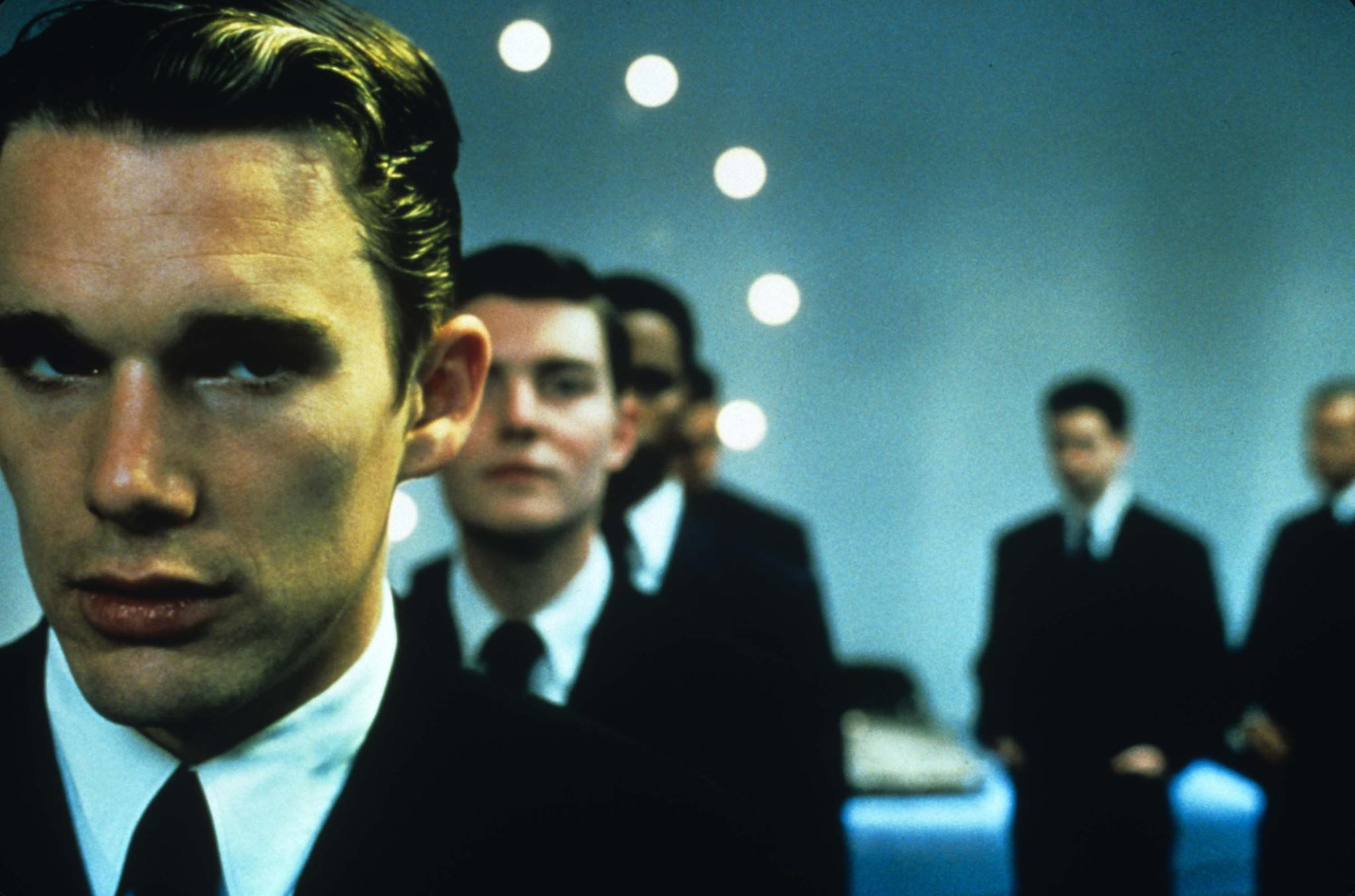
Vincent Freeman’s dream has always been to travel to outer space. However, he is an “in-valid” and is considered genetically inferior; he was conceived naturally, not by genetic manipulation. He can’t leave Earth as he’s not a “valid”. However, he goes against his predestined fate by buying and using someone else’s DNA to cheat the system.
Andrew Niccol’s masterpiece asks whether, if we make significant scientific advances, we’ll still be subject to the same prejudices we face today. And should we focus on the betterment of society instead of individuals?
7. Predestination
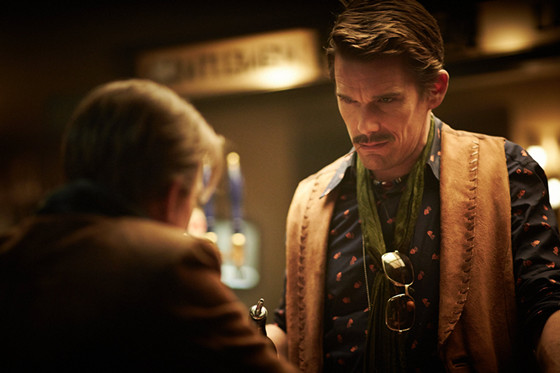
In Predestination, a time traveling agent takes on a last assignment to prevent a terrorist called the “Fizzle Bomber” from attacking New York City in 1975. He travels to 1970 and works undercover as a bartender. There, he starts up a conversation with a customer called John, who says a story that will affect them more than they’d think.
Just like the title’s meaning, the film makes you think about the inevitability of fate, and if our lives are really in our hands. There are lots of time paradoxes and twists—especially the ending—and the movie deserves a second viewing.
6. Paprika
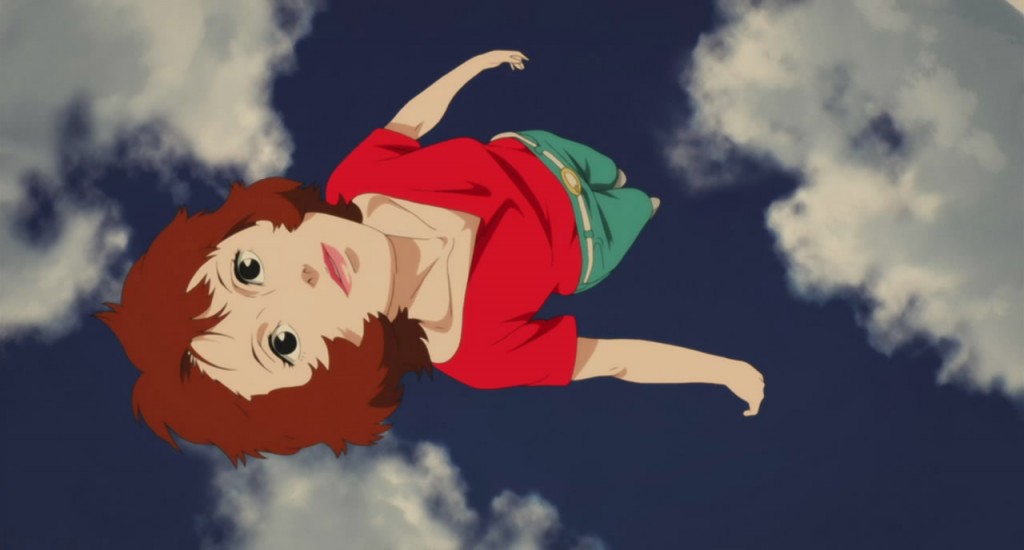
In the near future, psychotherapy treatment has evolved and doctors use a device called the “DC Mini” to view their patients’ dreams. Dr. Atsuko Chiba, who heads the team that works on the treatment, secretly helps more patients under the alias “Paprika”. When a prototype of the DC Mini is stolen, people start to act strange and even attempt suicide.
A bit similar to Solaris, the movie questions the realness of our dreams. Events move so seamlessly between reality and dreams that it’s difficult to tell them apart. Like a lot of the movies on this list, there are many questions left unanswered, but that’s part of the fun. Satoshi Kon’s final film is arguably his best and most cerebral film.
5. Upstream Color

A woman, Kris, is kidnapped and experimented on through a complex parasite. Her kidnapper brainwashes her and steals from her, then lets her go. She meets a man who has had a similar experience, though neither of them know it. Together, they try to piece together the fragments of their damaged lives.
Shane Carruth’s second film is not as brainy as Primer, but it will still make you scratch your head a couple of times. Carruth describes the parasite that affects his main actors as having a three-stage life cycle where it passes from humans to pigs and then to orchids.
4. Moon

Sam Bell is a blue-collar worker overseeing the Sarang Moon Station on the far side of the Moon. The station mines helium-3, a new energy source used on Earth. As Sam approaches the end of his contract, he grows increasingly anxious to meet his family back on Earth. However, he unearths a series of shocking revelations after crashing his harvester that put a serious dent on his plans.
Duncan Jones’s feature film debut explores themes of identity, solitude and the value of life. It also raises some difficult questions about the moral effects of genetic engineering when used (or misused) by corporate entities. The performances are rock-solid, the script is airtight and the plausibility is frightening. Jones might not make a film as smart or as multilayered as this—look at Source Code, for instance—but he doesn’t need to.
3. Solaris
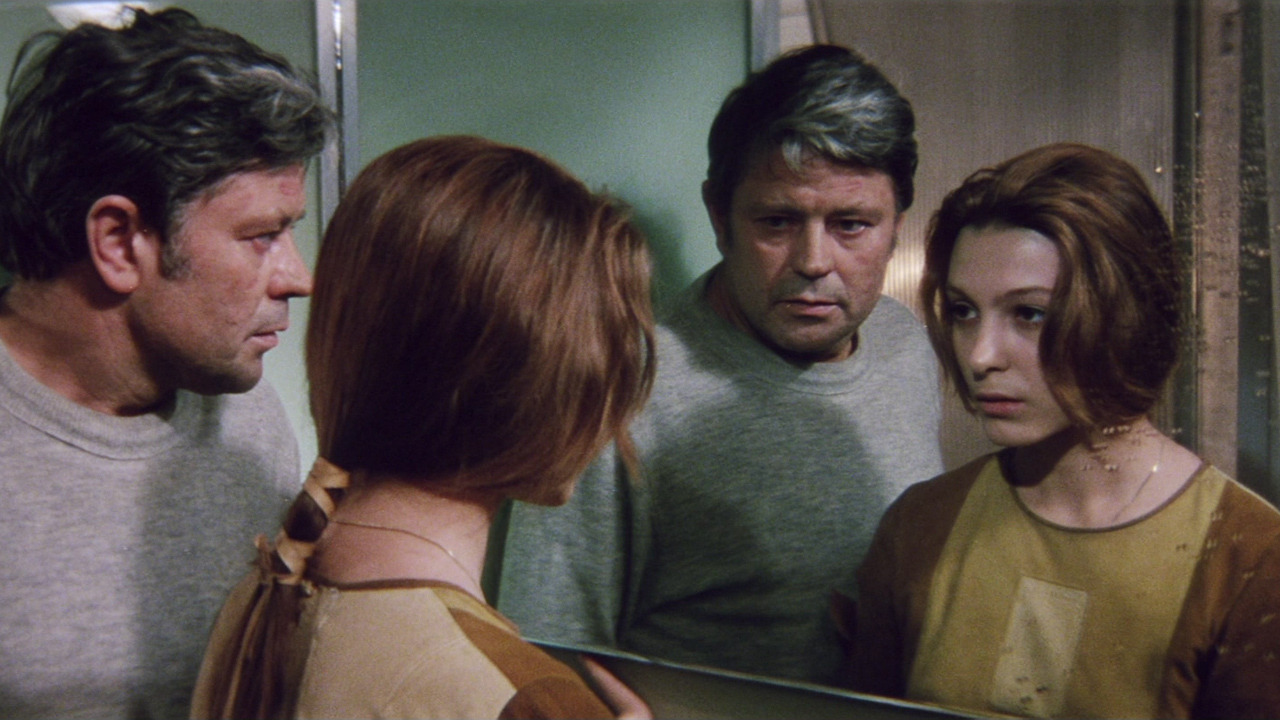
Psychologist Kris Kelvin is sent on an interstellar journey to a space station that orbits an oceanic planet called Solaris. His mission is to investigate the mental issues of the crew and decide if they should continue the project or abandon it. Soon after he starts the investigations, he learns that Solaris physically brings out people’s subconscious thoughts, obsessions and memories.
Andrei Tarkovsky’s classic explores the power of our subconscious, how reality can become unreliable, how we might be hopelessly unable to communicate with extraterrestrial life and much more. He made Solaris as a more human sci-fi film than Stanley Kubrick’s “cold and sterile” Space Odyssey. It might not be as different as he planned, but he still ended up making a masterpiece.
2. Primer
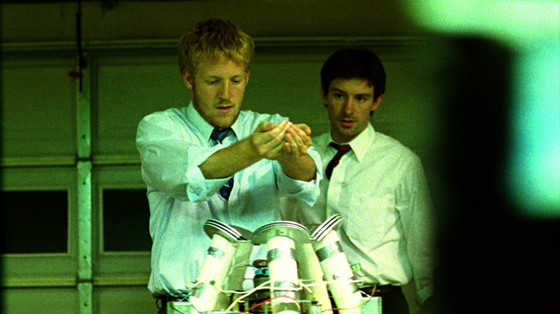
Aaron and Abe are engineers who accidentally create a time machine. They start to use it to make modest investments, but they begin to obsess over it. Soon, they learn that time travel is more complicated—and much darker—than they could have imagined.
Shane Carruth’s debut film is the most cerebral science fiction film of our time; perhaps of all time. Despite the mediocre budget of $7,000, this is among the most ambitious films ever. It examines the technicality of time travel, the consequences, the philosophical implications and more. This is a film you might have to re-watch several times before you fully understand it.
1. 2001: A Space Odyssey
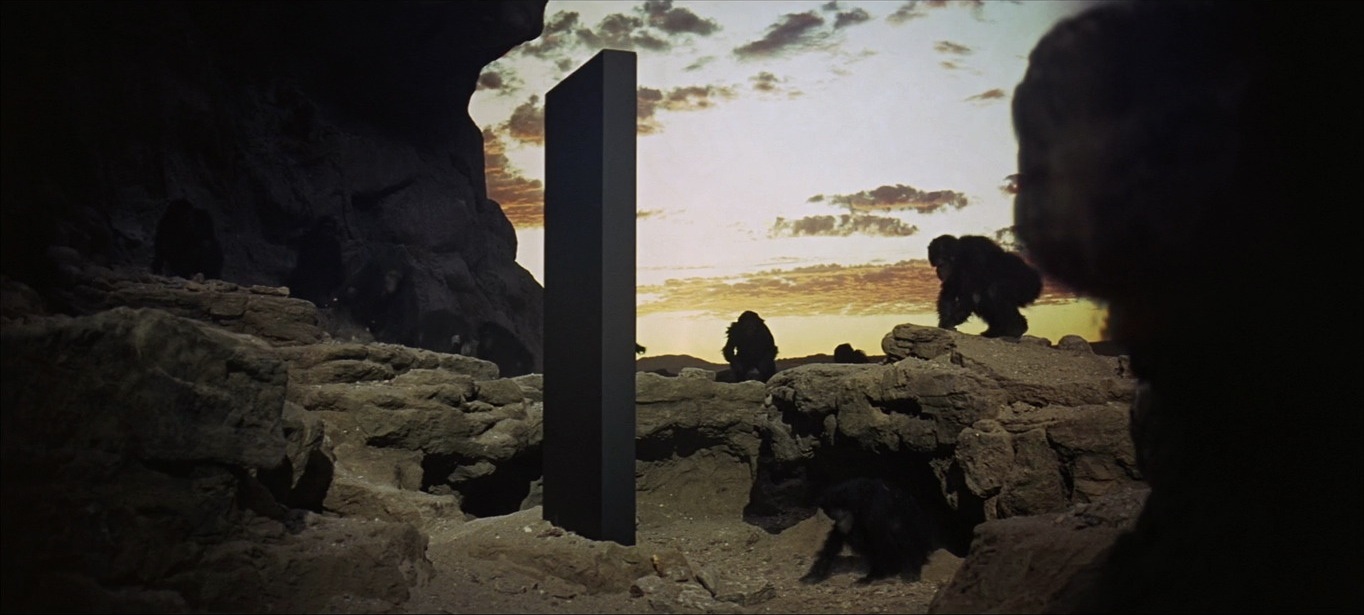
A group of astronauts are sent on a mysterious mission to Jupiter. As they get closer, their computer, HAL 9000, grows increasingly erratic.
For decades, the film has been interpreted by lots of people from critics to even religious groups. There isn’t really a wrong or right interpretation, and that’s the way Stanley Kubrick intended it. Whatever conclusion you may have drawn about it, you have to admit that this is one of the most breathtaking, unique and influential films of all time, with the most infamous AI villain to ever grace the big screen. A Space Odyssey has aged incredibly well, and it’s always worth a repeat viewing.
Author Bio: Fredrick is a copywriter-cum-scriptwriter with a passion for the macabre. When he’s not watching movies, he’s reading Lovecraftian novels and devouring manga.